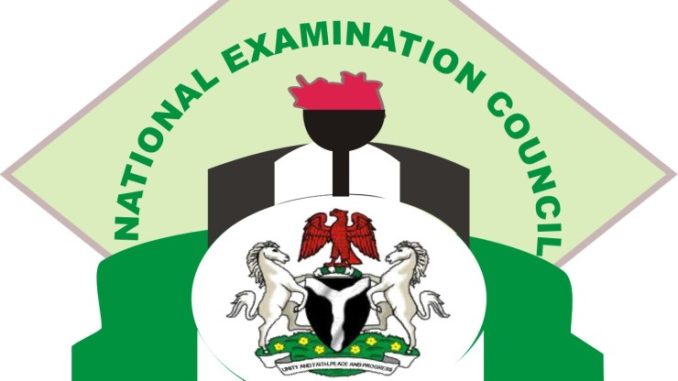
HISTORY OBJ:
1-10: ECACABDADB
11-20: BECCEEBDBB
21-30: CECDAEABCB
31-40: CABEDCACAD
41-50: BBEACBDABB
51-60: ACCEAADBDA
*NECO HISTORY*
*NUMBER ONE*
(1)
(i) Partial Perspective: Archaeology primarily focuses on material remains, providing only a fragmented understanding of past human societies. It lacks information about abstract concepts, beliefs, and social structures.
(ii) Time Constraints: Archaeological investigations are often limited by the availability and preservation of physical artifacts. As a result, certain periods and events may remain undocumented or obscured.
(iii) Bias in Data Interpretation: Archaeological interpretations can be subjective and influenced by preconceived assumptions or modern cultural perspectives. This may lead to biases in the reconstruction of past events.
(iv) Limited Geographic Coverage: Archaeological research is typically confined to specific geographical regions. While excavations can provide insights into local history, they may not represent the entire scope of Nigerian history.
(v) Environmental Factors: Natural processes such as erosion, flooding, or soil acidification can damage or destroy archaeological sites, hindering the recovery of historical information.
(vi) Invasive Nature: Archaeological excavations are destructive by nature, potentially affecting the preservation of sites for future research. This limits the ability to repeat or verify archaeological findings later on.
(vii) Lack of Historical Records: In some cases, archaeological evidence may be insufficient or absent for particular time periods or events. This can make it challenging to reconstruct a comprehensive history without relying on other sources.
(viii) Difficulty in Dating: Establishing accurate dates for archaeological findings can be challenging, which can limit the chronological understanding of historical events.
(4)
(i) Muslim preachers and scholars living among the people: Muslim preachers and scholars lived among the Yoruba people, allowing them to build relationships, understand the local culture, and share their faith effectively.
(ii) Itinerant preaching: Muslim scholars and preachers traveled throughout Yorubaland, preaching and teaching about Islam in markets, towns, and villages.
(iii) Literary works: Islamic scholars used literary works, such as books and pamphlets, to spread Islamic teachings and ideas.
(iv) Trade relations and cultural exchange: Trade relations and cultural exchange between Yoruba, Hausa, and Nupe communities helped spread Islamic ideas and practices.
(v) Growth of Sufism: The growth of Sufism in Yorubaland emphasized spiritual purification, mysticism, and personal devotion, making Islam more appealing to many Yoruba people.
(vi) Modernization of Islamic education: The modernization of Islamic education in cities like Ilorin made it more accessible, organized, and appealing to many Yoruba people.
(vii) Influence of colonialism: Colonialism led to increased conversion to Islam, as many Yoruba people sought to associate with the dominant global power and access education and economic opportunities.
(viii) Public preaching: Public preaching became an integral part of Yoruba mass culture, making Islam more visible, attractive, and accessible to many people.
(6)
(i) Spiritual leadership: Usman Dan Fodio’s leadership as “Commander of the Faithful” (Amir al-Mu’minin) united the emirates under a single spiritual authority, providing a shared sense of purpose and direction.
(ii) Loose confederation: The emirates maintained a degree of autonomy, managing their internal affairs while acknowledging the Caliphate’s overall authority. This allowed for local self-governance and flexibility.
(iii) Centralized dispute resolution: Succession disputes and other important matters were referred to Sokoto for resolution, fostering unity and stability. This ensured that conflicts were addressed in a fair and consistent manner.
(iv) Colonial influence: During the colonial era, the British indirect rule policy maintained the Caliphate’s structure, utilizing traditional leaders and institutions. This helped preserve the Caliphate’s unity and influence.
(v) Centrality of the Sultan: The Sultan of Sokoto remained a unifying figure, holding significant political and spiritual influence across Northern Nigeria. The Sultan’s leadership helped maintain cohesion and coordination among the emirates.
(vi) Shared legal framework: The Maliki school of law was widely applied, providing a common legal foundation across the emirates. This shared legal framework facilitated cooperation and consistency in governance.
(vii) Decentralization of power: Legislative and executive functions were distributed among local, state, and federal bodies, ensuring a balance of power and promoting cooperation among the emirates. This decentralization prevented any one emirate from dominating the others.
(8)
(i) Economic Disparities: The prosperous southeastern region, dominated by the Igbo ethnic group, resented the economic control exercised by the northern-dominated federal government.
(ii) Ethnic and Religious Tensions: The war was fueled by longstanding ethnic and religious tensions between the primarily Christian Igbo and the predominantly Muslim Hausa-Fulani in the north.
(iii) Political Polarization: Political divisions and power struggles between different ethnic groups led to the breakdown of trust and cooperation within the national government.
(iv) Military Intervention: The military’s brutal response to a secessionist movement in the southeastern region further escalated tensions and led to the outbreak of war.
(v) External Influences: Some foreign powers, particularly France, allegedly supported secessionist elements in eastern Nigeria, fueling the conflict.
(9)
(i) End of the Civil War: Gowon played a crucial role in ending the bloody civil war in 1970, bringing Nigeria back together as a united nation.
(ii) Economic Recovery: After the war, Gowon implemented policies to revive the Nigerian economy, including boosting oil production and embarking on large-scale infrastructure projects.
(iii) Expansion of Education: His government significantly expanded access to education at all levels, establishing new schools and universities across the country.
(iv) Creation of New States: Gowon created 12 new states in 1967 to address regional grievances and promote unity within Nigeria.
(v) Foreign Policy Enhancements: Gowon improved Nigeria’s standing in the international community by fostering closer ties with other African nations and supporting the African Union.
(vi) Introduction of the National Youth Service Corps (NYSC): Established in 1973, the NYSC program aimed to promote national unity and integration by requiring all graduates of higher education to serve one year in communities outside their home states.

Leave a Reply